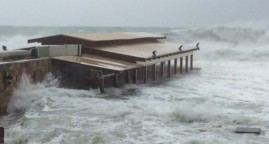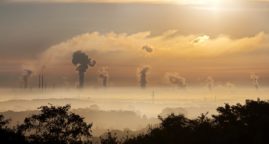Scaling Up Climate and Disaster Resilience for the World’s Most Vulnerable
Natural disasters can cause unthinkable tolls and continue to disproportionately affect the poorest and most vulnerable.
Managed by the World Bank, GFDRR is a global partnership funded by 22 donor partners with a mission help developing countries better understand and reduce their vulnerabilities to natural hazards and adapt to climate change.
Through technical assistance, capacity building, and knowledge sharing activities, the Global Facility for Disaster Reduction and Recovery (GFDRR) helps vulnerable countries reduce disaster and climate risks and build resilience.
During the past fiscal year, GFDRR provided nearly $80 million in grants that address these challenges in over 89 countries. This work has enabled vulnerable countries to leverage significant additional funding in resilience.
“This has been a monumental year for the development community. As we work toward helping countries realize the Sendai Framework, the Paris agreement, and other accords, the work of GFDRR will be central to help build resilience.” Francis Ghesquiere, Head, GFDRR Secretariat.
Read the full article on the World Bank website
Related Articles
Index for risk management: results 2015
November 2014. INFORM is a global, open-source risk assessment for humanitarian crises and disasters. It can support decisions about prevention, preparedness and response.
Lebanon’s storm preparedness helps response plan
03/02/2015. A decade of efforts to better prepare and respond to disasters was highlighted when seasonal storm “Zina” struck Lebanon in early January 2015.
New study reveals increasing threats of cumulative climate hazards around the world
12/19/2018. This research reveals that societies face a much larger threat from climate change than previous studies have suggested.





